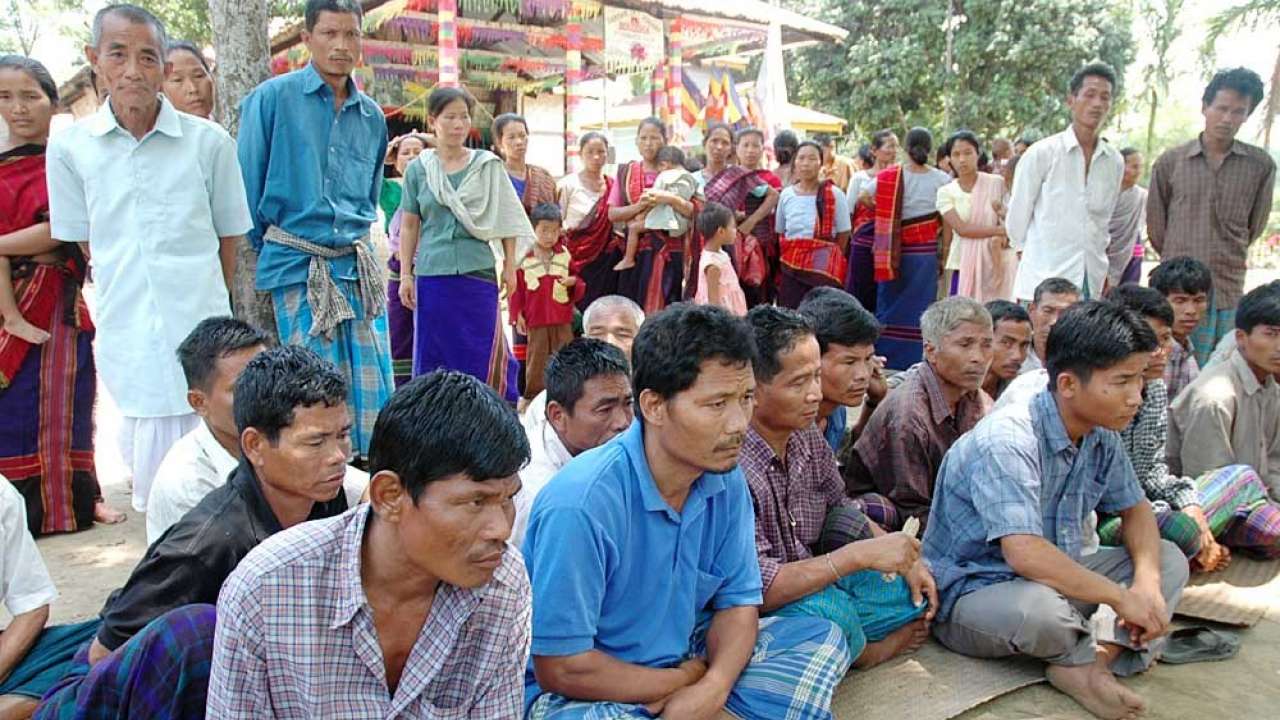
India to submit report on Arunachal's Chakmas-Hajongs to UN anti-racism body

India on Friday (July 15) is expected to submit its action-taken report on the steps taken to prevent any deportation or relocation of the Chakma and Hajong communities of Arunachal Pradesh, to the UN Committee on the Elimination of Racial Discrimination (CERD), the United Nations’ anti-racism body.
CERD has mandated that the action-taken report should clearly specify if any special census was conducted to deport the Chakmas and Hajongs from Arunachal Pradesh, and mention measures adopted to prevent and combat their racial profiling or racial discrimination.
Also read: Before COVID, Chakma, Hajong tribes of Arunachal battled stormy migration
The report is also supposed to specify if the judgements of the Supreme Court in the cases of the National Human Rights Commission vs State of Arunachal Pradesh and Anr and the Committee for CR of CAP; and Ors vs State of Arunachal Pradesh and Ors, were implemented.
The Chakmas, predominantly Buddhists, and Hajongs, mostly Hindus, are tribes of the Chittagong Hills of the erstwhile East Pakistan (now Bangladesh) who migrated to India after facing religious persecution in the Islamic country, following the destruction of their homes by the Kaptai dam on the Karnaphuli River in the 1960s. The Indian government rehabilitated the communities in Arunachal Pradesh, where have been living for the past 50 years.
In a major ruling in 2015, the Supreme Court had approved the grant of Indian citizenship to some 54,000 refugees from the two communities.
The Centre in 2017 also promised to grant Indian citizenship to around 1 lakh Chakma and Hajong refugees under the Citizenship Amendment Act. But it led to widespread protests in the northeast as the locals fear giving the communities permanent citizenship will alter the tribal-dominant demographics of the region.
Also read: Arunachal stares at students’ stir as govt rakes up Chakma-Hajong issue
On 29 April 2022, CERD, consisting of 18 experts (elected by the members of the United Nations) directed India to submit its action-taken report after it intervened against announcement of relocation by then Chief Minister of Arunachal Pradesh in August 2001; the special census of the two tribes launched by Deputy Commissioner of Changlang district in November 2021 to deport them, and the alleged non-processing of their citizenship applications in deference to Supreme Court orders.
“The intervention of the UN top anti-racism body is a recognition of racial discrimination faced by the Chakmas and Hajongs of Arunachal Pradesh by the United Nations. That the UN has to intervene seeking implementation of the Supreme Court’s judgements in the country sends an absolutely wrong message on India. If the Supreme Court judgments are not implemented by the Union of India and the State of Arunachal Pradesh, it basically means that the rule of law does not exist in the country for the Chakmas and Hajongs,” Suhas Chakma, founder of the Chakma Development Foundation of India (CDFI) said in a press release.
Also read: Centre, state should make stand clear on Chakma-Hajong refugees: AAPSU
India had ratified the UN Convention on the Elimination of All Forms of Racial Discrimination (CERD) in 1968 accepting its legal enforceability in India and on 21 September 2010. India also issued gazette notification specifying the Convention “as an international covenant in its application to the protection of human rights in India” under the Protection of Human Rights Act, 1993.


